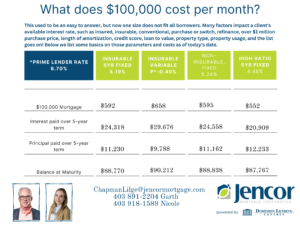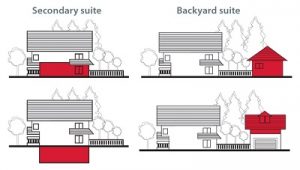
Jencor Mortgage Corp‘s Broker/Owner Croft Axsen is pleased to announce the merger of Jencor and Mortgage Connection and the launch of the Jencor Underwriting Centre as a new division of Mortgage Connection. Jencor is a well-established and respected brand with thirty-five years of excellence in Alberta.
Jencor Clients and Brokers will continue to benefit from Croft’s 35 years of experience as he heads the Jencor Underwriting Centre.
The coming together of these two larger mortgage brokerages creates a truly symbiotic relationship providing value to our mortgage clients and to all our partners and stakeholders. Increased lender access, even better borrowing options and a larger full-service underwriting centre will help create a more streamlined experience for mortgage clients, lenders, referral partners and mortgage brokers.
We are pleased to continue under the DLC Brand. Mortgage Connection is Dominion Lending Centre’s largest Alberta based mortgage brokerage and is on track to fund $2 Billion in mortgages in 2023.
“We are thrilled with the coming together of these two brands and adding the power of Jencor. We look forward to tremendous growth as a unified force in the Canadian mortgage industry”
Robby Aurora, Managing Partner, Mortgage Connection
…AND…
Introducing my Co-Broker partner Nicole Lilge

Nicole’s background in banking began in 2003 with BMO in Financial Services Manager roles, and then at CMHC from 2006-2016 as a Client Service Agent helping lenders submit their files for approval, then as a Business Development Manager, and later as Manager of Communications & Marketing. Nicole worked for MCAP as an Internal Broker doing purchases, refinances, and ports, and generating excellent funding ratios. And then, to my good fortune, she joined Jencor in September 2021.
Nicole’s skills and experience were just what I was searching for in a partner to expand my capacity and service to clients. And then I learned she is fluent in French. And once I experienced her approach to client service and her near-instant responsiveness to client’s calls and emails, I knew we had to work together.
And so here we are, the ChapmanLilge team. We are available at our cell numbers and individual emails and team email below.
We hope to hear from you soon, even if just to catch up!
Garth email: garth@mortgageconnection.ca
cell: 403.891.2204 website: garthchapman.ca/
Nicole email: nicole@mortgageconnection.ca
cell: 403.918.1589 website: nicolelilge.ca/
Or reach us both with our team email
Chapman.Lilge@mortgageconnection.ca








